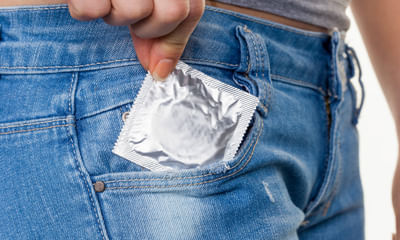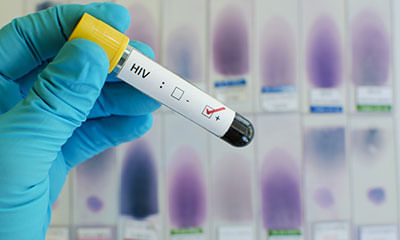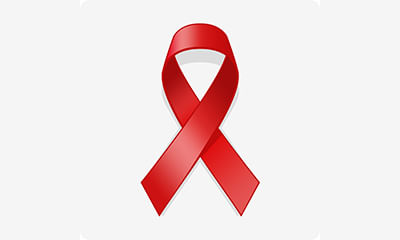10 Ways To Prevent Hiv
I am 25 years old male. I never touch any girl except my wife. But one person (bisexual) sucked my penis one day. I have ...
Ask Free Question
Exchange of any body fluids like saliva, semen, urine, can all transmit infection. You need to be on retrovirals and seek treatment of a good specialist. Don't get anxious, with proper treatment you can prolong the severity and lead a good life. All the best.
I'm addicted to masturbation and masturbating FROM past 15 years now I ejaculate within 10 to 20 seconds while masturbat ...
Ask Free Question
Our society is ridden with too many myths about sex. They include misconceptions like masturbation is âbadâ, harmful to sexual life, causes weakness, pimples, premature ejaculation, impotence (erectile dysfunction), mental disorders.. etc. The truth is that masturbation is a healthy and natural part of the normal human sexual development. It helps in relieving sexual tensions in men and women who do not have opportunity for safe sex in a comfortable setting. Scientific studies have proven that masturbation has no known ill-effects at all. On the other hand, it saves the individual from sexually transmitted infections including HIV, sex crimes and attendant social consequences. One can masturbate as and when the body and mind demands sexual relief. The count doesnât matter as long as one masturbates out of need rather than habit.
Hello doctor, I need your suggestions I'm going to have sex for the first time and to feel her better I need to improve ...
Ask Free Question
Focus on touching, kissing, and caressing each other in ways that heighten arousal before penetration. Try to relax and take it slowly. sex for the first time is always anxious and you dont need any pills to perform well.i suggest 1.Talk with each other about what feels good and how you both like to be touched. 2.spend more time in forplay like touching and kissing 3.To help ease penetration, add a of water-based lubricant on the opening of the vagina and to the outside of the penis or the condom. Reapply as often as necessary to ease any discomfort and increase pleasure. 4.Experiment with various positions. 5.If an erection goes away, remember it will most certainly come back. dont worry you will perform better with each sex encounter . to prevent pregnancy 1.Use condoms (it also prevents STD,HIV ) 2.she can use contraceptive pills Take care .
What are the ways in to cause hiv aids? Example, I had non protected sex with more than 4 girls what points I should tak ...
Ask Free Question
1 best to prevent aids/hiv not to have sex with multiple partners. 2. Having unprotected sex with a partener whose hiv status is not known always exposes you to the infection3. Use codom while having sex 4. Do not try unnatural sex- anal/oral5 best in your interest is do not indulge in such activities. Do not feel proud in having sex with more girls. This is not good habit and you may be in trouble some time-socially'legally, and health wise. Good luck.
What is the symptoms of aids and what medicine should be good for that. Please help me. ...
Ask Free Question
Some people may experience a flu-like illness within 2-4 weeks after HIV infection. But some people may not feel sick during this stage. Flu-like symptoms can include: Fever Chills Rash Night sweats Muscle aches Sore throat Fatigue Swollen lymph nodes Mouth ulcers These symptoms can last anywhere from a few days to several weeks. During this time, HIV infection may not show up on an HIV test, but people who have it are highly infectious and can spread the infection to others. You should not assume you have HIV just because you have any of these symptoms. Each of these symptoms can be caused by other illnesses. And some people who have HIV do not show any symptoms at all for 10 years or more. If you think you may have been exposed to HIV, get an HIV test. Most HIV tests detect antibodies (proteins your body makes as a reaction against the presence of HIV), not HIV itself. But it takes a few weeks for your body to produce these antibodies, so if you test too early, you might not get an accurate test result. A new HIV test is available that can detect HIV directly during this early stage of infection. So be sure to let your testing site know if you think you may have been recently infected with HIV. After you get tested, it’s important to find out the result of your test so you can talk to your health care provider about treatment options if you’re HIV-positive or learn ways to prevent getting HIV if you’re HIV-negative. HIV is treated using a combination of medicines to fight HIV infection. This is called antiretroviral therapy (ART). ART isn’t a cure, but it can control the virus so that you can live a longer, healthier life and reduce the risk of transmitting HIV to others. ART involves taking a combination of HIV medicines (called an HIV regimen) every day, exactly as prescribed. These HIV medicines prevent HIV from multiplying (making copies of itself), which reduces the amount of HIV in your body. Having less HIV in your body gives your immune system a chance to recover and fight off infections and cancers. Even though there is still some HIV in the body, the immune system is strong enough to fight off infections and cancers. By reducing the amount of HIV in your body, HIV medicines also reduce the risk of transmitting the virus to others. ART is recommended for all people with HIV, regardless of how long they’ve had the virus or how healthy they are. If left untreated, HIV will attack the immune system and eventually progress to AIDS. HIV DRUG CLASSES HIV medicines are grouped into six drug classes according to how they fight HIV. The six drug classes are: Non-nucleoside reverse transcriptase inhibitors (NNRTIs) Nucleoside reverse transcriptase inhibitors (NRTIs) Protease inhibitors (PIs) Fusion inhibitors CCR5 antagonists (CCR5s) (also called entry inhibitors) Integrase strand transfer inhibitors (INSTIs) The six drug classes include more than 25 HIV medicines that are approved to treat HIV infection. Some HIV medicines are available in combination (in other words, two or more different HIV medicines are combined in one pill.)
I am 19 now but my weight is just 40. I want to put on weight and I want increase my figure states as well. I am vegetar ...
Ask Free Question
First to find out the right cause of you present conditions, its help to make a correct line of treatment for you. 1. Include Calories In Your Diet Everything we eat has some calorie content. So like we eat food with fewer calories to lose weight, we need to eat food that has more calories to gain weight. You need to take in more than 250 calories daily to add roughly half a kilo to your current weight. What You Need Eat foods that are rich in calories like pulses, cereals, meat, bread, rice, dry fruits, and nuts. What You Have To Do Add vegetables like French beans, broccoli, Chinese cabbage, carrots, lettuce, spinach, asparagus, pumpkins, and eggplants to your diet. Add a healthy portion of red meat to your diet too. But keep in mind not to overdo it. The aim is not add weight not cholesterol! You can even add olive oils in generous quantities to your salads. Another way to add calories to your diet is by increasing the consumption of dairy products. Don’t cut back on the fat content in your milk. Do not ask for low-fat curd at the store. Make sure you consume a full calorie dairy product. Why This Works Food rich in calories and proteins easily helps people gain and maintain weight as opposed to other foods (1). Caution Avoid fast food or cereal bars. 2. Increase The Number Of Meals Have six meals in a day – three big meals and three small. Breakfast, lunch, and dinner should be heavy and calorie-rich. A heavy dinner adds weight to your body as your metabolism is not as active when you sleep as compared to when you are awake. What You Have To Do For breakfast, go for a full bowl of cereal, toasted bread with butter, and a fruit. If you’re not a big fan of butter, then you can always pick cheese or a yummy spread of peanut butter. For snacks, have nuts and dry fruits, boiled veggies with a dollop of cream, or cheese sandwiches. You can even add some more items to your dessert tray. And, once in a while, you can give in to your taste buds and indulge in cakes, pizzas, burgers and whatever else your heart fancies. It is okay to give into your taste buds every once in a while. Why Does It Work Frequent eating every three to four hours helps maintain consistent energy levels in your body (2). Meal portions are not big, so there is no fat gain. 3. High Proteins Along With Calories Only calories won’t add to your body weight, include the right amount of proteins to your diet. Remember ladies, if you want to put on weight and look fit, you need to build muscles not flab. Top nutritionists recommend a high protein diet. What should your ideal diet be? What You Need Eggs, lean meat, fish, pulses, sprouts, and dairy products that rich sources of proteins. Fish such as tuna and mackerel are rich in oil and are one of the best ways to increase weight. Why Does It Work Proteins contain amino acids that are the founding components of muscles. These food sources will give you enough protein necessary to build and tone muscles 4. Weight Gain Supplements Another way to go about this is by including some additional supplements in your diet. In some cases, just the diet and exercise may not bring results as quickly as you expect. What You Need Whey protein is an increasingly popular supplement that you can add to your milk or smoothies. Why Does It Work In this case, adding some supplements like whey protein contributes to the body mass and aid in muscle development Workout To Gain Weight Sometimes, gaining weight isn’t just about adding a few pounds but it is also about building muscles. The best way to go about this is to start working out. Why Does It Work Developing your lean muscles as opposed to fat deposits not only makes you stronger but it also adds mass (5). This is definitely the right mix to gain weight. Here is a proper diet chart to gain weight. You can use this to maintain optimum health and stay in shape. Reasons For Being Underweight Anyone who is 15-20 percent below the normal weight, with respect to their age and height, is defined as underweight. For example, if you are a female aged between 25-50 years, and your height is 1.68 meters, then your weight should ideally be 59 kgs. However, when the body weight falls to 50 kg (15%) and 47 kg (20%), it is termed as underweight. A woman weighing 59 kgs should have a Body Mass Index of 20.90 kg/m. As the weight drops, the BMI comes down to 18. 8 (-15%), which is still within the normal range or 17.7 (-20%), which is below normal. For a man aged between 25-50 years with an average height of 1.76 meters, a normal body weight with healthy BMI should be 70 kg. Reduction of weight to 15-20% will also reduce the Body Mass Index. For instance, the reduction of weight to 60 kg and 57 kg can result in BMI of 19.4 and 18.4 respectively. It is very important to understand the reason behind a drastic loss in weight since it can have both psychological and physical reasons. 1. Hyperthyroidism The hormone thyroxin produced by the body is often regarded as the ‘conductor’ or the ‘orchestra of the body’. If the thyroxin levels are normal, then metabolism, height, and weight are within the limits. If the function of thyroid gland is disrupted, then the body’s metabolism, heartbeat, and body temperature become deranged, and there is pronounced weight loss Overactive thyroid or Hyperthyroidism is associated with symptoms like goiter or a lump in the throat, exophthalmos (bulging eyeballs), high temperature, excessive sweating, nervousness, fatigue, increased heart rate and weight loss despite eating properly In case of hyperthyroidism, the doctor will ask you to do a blood test to detect the thyroid hormone levels in the blood. 2. Cancer Malignancy or cancer can cause rapid weight loss, fatigue, lack of appetite, nausea and inability to gain weight, Since cancer has serious repercussions it is important to consult the doctor who will do a thorough diagnosis and suggest a prognosis for the same. 3. Tuberculosis Tuberculosis is accompanied by weight loss, coughing, night sweats, and extreme fatigue. If the drastic weight loss is due to tuberculosis you need immediate treatment. Tuberculosis is a curable disease if diagnosed at the early stages. 4. HIV Aids HIV Aids actually prevents weight gain. If medical tests confirm HIV positive, you need to take necessary medications, and make some diet and lifestyle changes to improve your health. An early diagnosis can help cure this disease effectively. 5. Kidney Disease Kidney problems cause in change in urination. You may attend the restroom several times, but still you feel that urine was not sufficient. There will be fluid retention, nausea and vomiting, fatigue, skin rash and itching, metallic taste in the mouth, and smell of ammonia in the breath. The lack of appetite with fever triggers weight loss 6. Medicines Sometimes antibiotics lead to medication toxicity and lower your appetite Due to lack of appetite, you deprive yourself from important nutrients that help in development and maintenance. So medicines can be one of the reasons behind acute weight loss. You have to check with your doctor or pharmacist if you have started a new medicine and are experiencing weight loss. 7. Eating Disorders, Enzyme Deficiency, Hereditary Factors, Depression etc.
" Candida infection" My tongue is under the attack of some yeasty fungus which causes the above mentioned disease. Kindl ...
Ask Free Question
Candida fungus is normally found in our mouth. Infection from this fungus hsppens wen ones immunity is suppressed due to long term usage of antibiotics n corticosteroids n few other medications. Stress also plays a major factor. Apply candid oral paint liberally with your finger tips or with help of cotton buds on the affected part of your tongue twice daily for a wk. Continue till the patch disappears. Drink plenty of fluids.
What are the symptoms of human immune deficiency virus infection and acquired immune deficiency syndrome and what to do ...
Ask Free Question
When someone gets infected with hiv, there will be transient symptoms of viral infection like fever, sore throat, neck node swellings, but they will subside by themself in 1 month and then patient will remain asymptomatic for a long time ranging from 5 years to 10 years. The virus in between this period will continue damaging the body's immune system, and when the damage is increasing the patient starts getting different types of infections in various organs of body. These infections many times are caused by such organisms which usually do not cause disease in otherwise healthy person, so they are called opportunistic infections (i. E. Infections see an opportunity and occur in body when the immunity is low). When the immune system is too low and pt gets serious infections that stage is called aids. They hiv spreads through blood and body fluids. So best way to prevent is to prevent contact of blood or body fluids from a patient. Measures such as safe sexual practices, avoiding contaminated blood transfusion, not using already used needles and syringes, and ways to prevent mother to child transmission in womb can prevent the spread of hiv.





